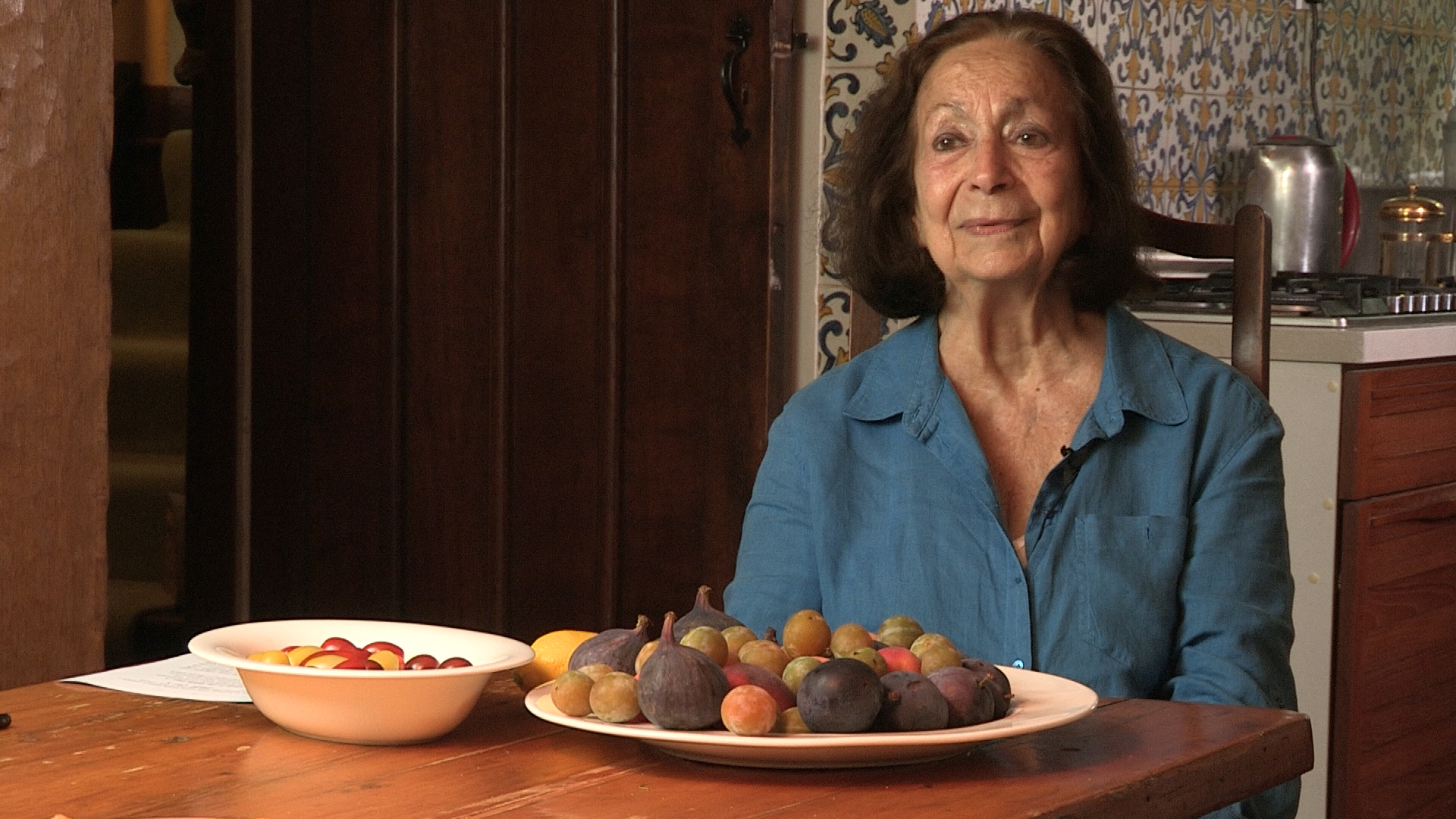NEXT STORY

Jewish food? There is no such thing!
RELATED STORIES

NEXT STORY

Jewish food? There is no such thing!
RELATED STORIES


|
Views | Duration | |
|---|---|---|---|
| 51. Modern Italy and old props | 02:55 | ||
| 52. Unwelcoming hunting lodge in Sardinia | 02:57 | ||
| 53. Regional divisions in Italy | 03:57 | ||
| 54. Feeling welcome in Sicily | 03:35 | ||
| 55. Exploring food in Sicily | 03:10 | ||
| 56. The cheapest holidays are sometimes best | 03:36 | ||
| 57. The grand wedding in Sicily | 04:45 | ||
| 58. Jewish food? There is no such thing! | 1 | 03:56 | |
| 59. My Jewish odyssey | 1 | 03:16 | |
| 60. Jewish dafinas | 1 | 02:11 |


And then the wedding, the wedding was extraordinary. Because you know there were these mafia weddings. But not even mafia, but in Sicily there is this spirit, or this wish, of grandiosity that people have to be grand. And show grandness. And the weddings, the banquets, was like a medieval banquet. Including a peacock in the middle, as a centre piece. But there were so many centre pieces as well. It was, you could not believe. I wish I'd photographed that, but I didn't, I didn't have a camera. But also, in the kitchen, there was all these goings on.
But one of the things that to me was fascinating, was that they had a huge, huge cardboard wedding cake that was gigantic. It was cardboard but covered with icing sugar. And it was actually taken from drawings of Carême. Carême was a great French, I forget his years, when he was alive. I forget. But he had been the first chef to do enormous architectural designs for cakes, and for everything else as well. And many others did, for instance, sculptures of butter. Sculptures of ice. But he did these. And so, they had the book of Carême, and his drawings. And they had all these different architectural cakes. And what they did, at the end of the dinner, which went on for a long time, because they had so much food, so many different varieties... At the end they would bring out this great cake. And people would go, ah, ah. They couldn't believe. And then they would bring it in, and in the kitchen, they had prepared masses of sponge cake with the same icing, cut up into little pieces. And they came out with all the plates with the little pieces of cake and pretending that they had come out from that big cake. So, for me it was lovely.
And also, for me I saw the grandeur of certain... of Italian foods. Especially in Sicily. There is a very grand cuisine which they called cucina nobile. That is quite ancient and some of it was influenced by French. Because after the revolution, a lot of French chefs came to work in Sicily for the aristocracy there. And so, their type of cuisine, nobile, is also called cucina de monsu. Monsu is their way of saying mousier. Right up till now it's called cucina de monsu. But the monsu's in that Sicilian wedding place... I went in there at the end, after all this food they were making, all they wanted was spaghetti aglio e olio. Just has garlic and parsley. And they said, 'We can't eat anything else'. Because when there was so much overdose of grandiosity, it took away their appetite. But I must say that somehow, sometimes that's what I feel. When I've cooked all day, and tasted things here and there, I just think, no, all I want is just something totally simple.
Claudia Roden (b. 1936) is an Egyptian-born British cookbook writer and cultural anthropologist of Sephardi/Mizrahi descent. She is best known as the author of Middle Eastern cookbooks including A Book of Middle Eastern Food, The New Book of Middle Eastern Food and The Book of Jewish Food.
Title: The grand wedding in Sicily
Listeners: Nelly Wolman
Claudia Roden talking to her granddaughter Nelly Wolman about her life in food.
Tags: Sicily, Italy
Duration: 4 minutes, 45 seconds
Date story recorded: September 2022
Date story went live: 04 December 2023